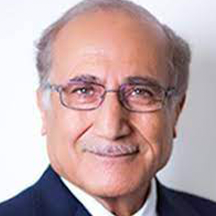Let us engage in some intriguing calculations regarding the selection and formation of Jordan’s Cabinets. Frankly, I undertook this exercise to challenge some generalisations made about those fortunate enough to be chosen for the esteemed position of prime minister.
In terms of semantics, the holder of this highly regarded role in the Arab world is often referred to as the prime minister (Raees Al Wozara), or the premier (Raees Awal), or the head of council (Raees Majlis Al Wozara). Ask any linguistic or legal expert, and they will tell you that each title carries different connotations and responsibilities. For instance, the term “prime minister” emphasises their role as chair of the council. While a “premier” also leads the council of ministries, but it implies they are merely “first among equals”—chosen to preside over meetings without wielding commanding authority over their fellow ministers.
In Jordan, however, the prime minister holds significant authority and is widely considered “the boss” of the ministers. According to the constitution, the prime minister is appointed by the King and tasked with forming a new government.
Each minister has the right to run their ministry independently. However, this autonomy does not exempt them from the obligation to ensure their decisions align with those of other ministries. If conflicts arise between ministries, it falls to the prime minister to resolve these issues. At times, such disputes are addressed through ad-hoc committees or the Cabinet as a whole.
It is worth noting that although a minister’s appointment depends on the prime minister’s selection, the King’s approval, and a majority vote of confidence in the lower house, the minister is not bound to follow any of their requests or orders blindly. In fact, Article 49 of the Jordanian constitution explicitly states that neither written nor verbal directives from the King absolve a minister of their legal responsibilities.
However, when selecting a prime minister, the King also consults with trusted people-and soon- with heads of political parties. These consultations serve to reflect the opinions of various constituencies and interest groups. Every candidate undergoes close vetting, and the final selection aligns with the King’s vision.
After being appointed, the prime minister faces the challenging task of negotiating with various candidates and political parties to assemble their Cabinet. Once a candidate minister is approved, it is the King’s authority, which officially validates the appointment.
The process of alignment—what we might call "consensus”—is labourious and lengthy.The selection process must carefully balance the need to align, facilitate and achieve harmony among ministers from different backgrounds and interests.
The King’s role in appointing a prime minister is critical, as his approval formalises the entire process.
The above considerations highlight the skills and qualities a prime minister in Jordan must possess to gain public acceptance. He—or, perhaps in the future, she—must exhibit a balanced personality, a disposition that is non-combative yet not overly compromising, and an ability to communicate effectively with the public.
For some reason, in some circles, people equate maturity with age. Let us examine the data.
To date, 44 men have served as Jordan’s prime minister. The average age of these individuals at the time of their first appointment is 52 years. The youngest ever was the late Mazher Raslan, who was just 35 when he was appointed by the late King Abdullah I in 1921.
The second youngest was the late Zaid Al Rifai, who was 37when he assumed office in1973 under the late King Hussein.
Hazza’ Al Majali was 38 when his Cabinet was formed—though his government lasted only a few days.
The fourth youngest, the late Sharif Abdul Hamid Sharaf, was 40 years old. Unfortunately, his tenure was cut short by his premature death from heart problems after serving just six months from late 1979 to mid-1980.
The oldest was Dr Abdullah Ensour, who served as prime minister for over three years. He was 74 when appointed by His Majesty King Abdullah. The second oldest, Dr Adnan Badran, was 70, while the third oldest, Dr Abdelsalam Al Majali, was 68 when appointed by the late King Hussein in 1993.
If we examine the average age of prime ministers appointed by King Abdullah, we find that it stands at 57.8 years—approximately five years higher than the overall average. Interestingly, this figure matches the mode age of prime ministers in Jordan.
Dr Jaafar Hassan, who has already served105 days as prime minister is 56—a fitting age, similar to those who historically were the longest-serving leaders.
Accordingly, I believe that Dr. Hassan, who has shown eagerness to perform his duties efficiently, deserves to be given a chance until the parliamentary elections of 2028.
